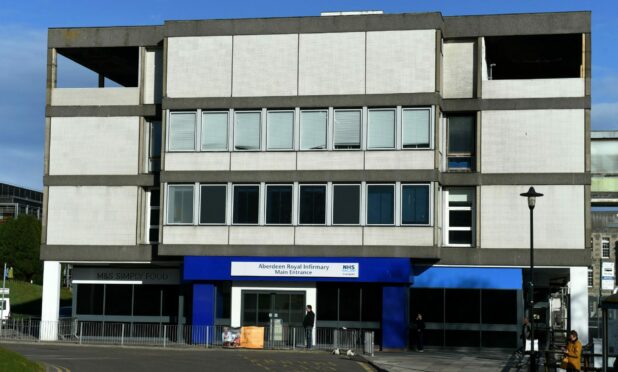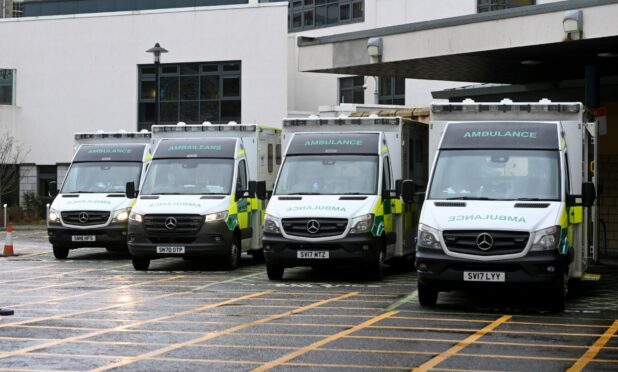NHS Grampian’s energy costs are expected to soar by millions of pounds as pressure continues to hit frontline services.
The health board faces an increase to its gas bill of around £4.5 million to £5m in 2022-23 and a £400,000 rise in electricity costs.
This means the under-pressure health service will have to pay approximately £14.3m in the year ahead on its total energy costs.
Adam Coldwells, deputy chief executive at NHS Grampian, raised the alarm to MSPs at Holyrood.
“In the very short term, I think we are very limited in what we can do and we are facing enormous rises in cost,” he said.
“It’s many, many millions in a year of increase that we are facing in the energy bill.”
Pressures on NHS Grampian
NHS Grampian warned this week of extraordinary pressures facing services with health bosses warning of “extremely long waits” for patients arriving at hospitals.
New weekly figures, for the week ending September 18, show 63% of NHS Grampian patients were seen within the four hour target at accident and emergency.
This is the second worst performance on record for the health board.
It is below the Scottish average of 66.2% and against a government target of 95%.
NHS Grampian was also one of four NHS boards – along with Highland – who failed to meet the 31-day standard for cancer treatment.
A total of 93.9% of patients (704) were seen within this timescale in the north-east, with 46 people not treated within this time.
At Highland, 87% of patients (289) started treatment within the 31 days, with 43 people not seen on time.
10 ambulances waiting outside A&E
Locals reported long queues of at least 10 ambulances waiting outside the A&E department at Aberdeen Royal Infirmary (ARI) on Monday due to how busy the hospital is.
North-east MSP Tess White highlighted the alarming queue as she asked Mr Coldwells what actions are being taken now.
In response, Mr Coldwells said: “It’s very much a flow challenge through the whole system.
“During the pandemic we reduced our bed space quite dramatically associated with many infection control measures.
“So we’re operating close to a maximum capacity on the bed space at all time so the flow through the system, like any system that’s very busy, things don’t work anything like as well when a system is very full.”
NHS Grampian said “four key actions” are being taken to reduce waiting times at ARI – including increasing capacity in cardiology and setting up “hot clinics” to book urgent cases in different specialties.


Conversation